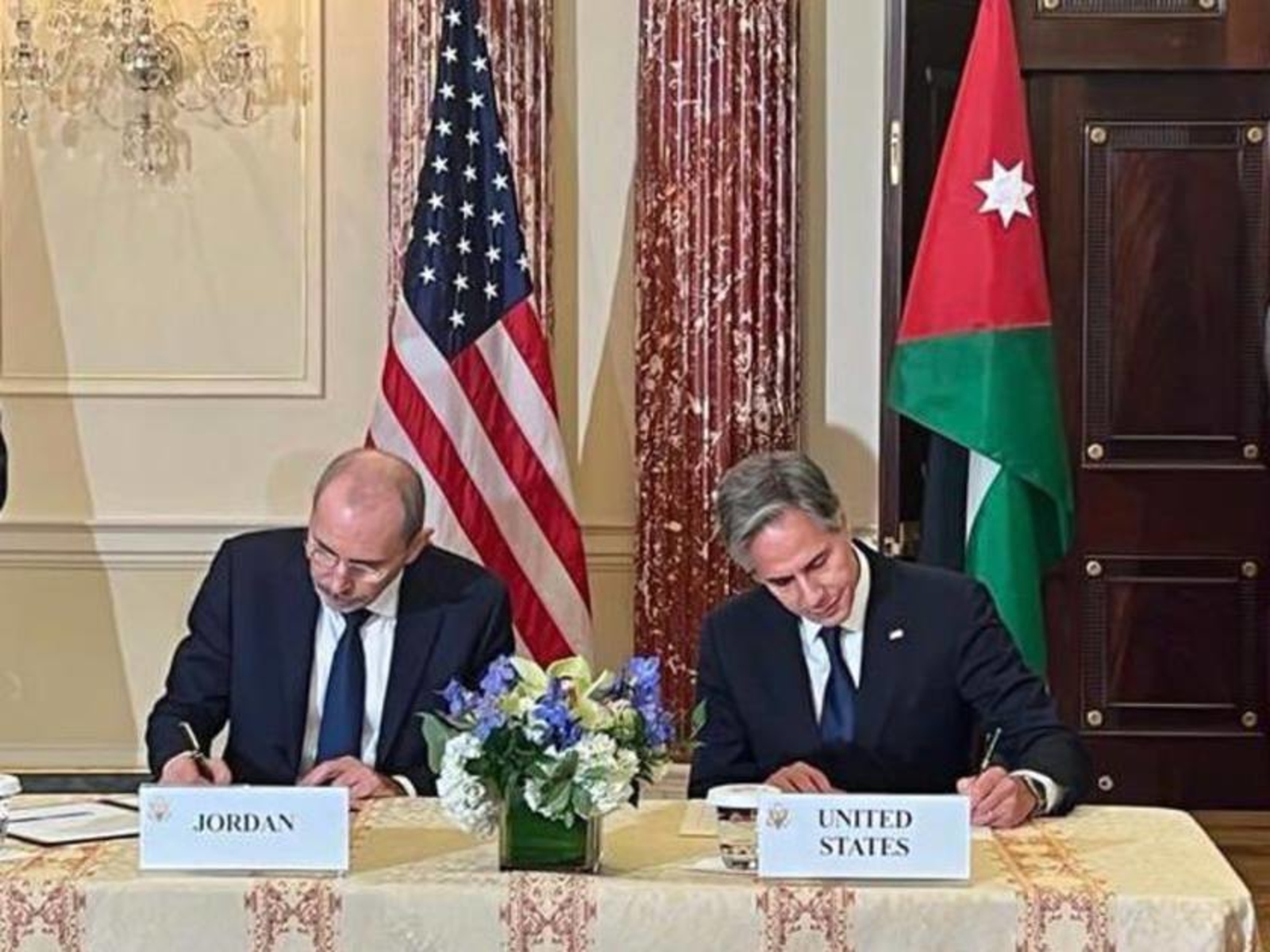The United States has lately shown a special interest in strengthening bilateral relations with Jordan, as reflected in the seven-year memorandum of understanding signed by the two countries on September 16th. This understanding will provide around USD 1.45 billion annually in American aid to Jordan, amounting to nearly USD 10 billion in total. This step comes amid intensifying regional tensions, growing anxiety over the expansion of Iranian influence, and Washington’s awareness of Jordan’s importance regarding the Palestinian issue and the war on terror.
There has been expanding military cooperation between the two countries in recent years, and Washington has expressed support for the economic reform measures undertaken by the Jordanian government, which motivated the latest package of financial aid to Jordan worth USD 1.45 dollars annually, starting from the 2023 fiscal year and ending with the 2029 fiscal year. The US has been providing various forms of economic assistance to Jordan in the past few years, particularly since 2010. I US President Joe Biden met Jordanian King Abdullah II on the sidelines of the Security and Development Summit in Jeddah on July 16th, with the former emphasizing the continued support of Jordan as a strategic ally of the United States and a force for peace in the region. US interests in supporting Jordan can be summarized in the following:
Jordan’s importance to US Middle East strategy: Jordan’s importance stems its pivotal location with respect to central crises in the Middle East, such as the Syrian and Iraqi crises. The US views Amman’s role in reducing the severity of these crises and confronting common threats and challenges as important. Jordan also is central to the war against terrorist organizations and hosts large numbers of refugees. President Biden, during his meeting with King Abdullah II in Jeddah, expressed his appreciation for Jordan’s hosting of Syrian refugees.
Confronting Iran’s regional influence: Jordan was one of the first countries in the region to issue warnings of the negative repercussions of Iran’s interventions on regional stability. King Abdullah II was the first to use the term “Shiite crescent” in 2004 to warn of Iran’s expanding influence, from Iraq to Lebanon. King Abdullah II reiterated this warning on January 14th, 2020, emphasizing that Iran’s influence now extends through Iraq, Syria, and Lebanon, posing a challenge which needs to be confronted.
The Jordanian stance in this respect is in line with US strategy, and concerns regarding Iran’s expanding regional footprint have increased after Russia’s war on Ukraine, and attempts by Iran to exploit Russia’s preoccupation by stepping in to take over areas recently under Russian control in Syria. King Abdullah II drew attention to this, when he said, on May 18th, that “the Iranians and their proxies will fill the void created by Moscow’s retreat in Syria due to its preoccupation with the war in Ukraine,” adding that “this matter will increase Iranian influence near the Syrian Jordanian border.
Jordan’s central role in the Palestinian issue: Recent US aid reveals Washington’s desire to restore the centrality of the Jordanian role with regards to Palestinian issues. It perceives Jordan can play a role in supporting any future efforts to conduct peace negotiations between Israel and Palestine, an area which has received more attention under the administration of President Joe Biden than the previous Trump administration.
US commitment to Jordan’s security: Jordan, like many countries, has been subjected to strong economic pressures in recent years, which were compounded by the repercussions of the Covid-19 pandemic, and rising food and energy prices as a result of the war in Ukraine. In this context, US financial support for Jordan represents an important priority, and the memorandum of understanding affirmed US commitment to Jordan’s security and prosperity. US Secretary of State Anthony Blinken stressed his country’s commitment to moving forward in developing the Jordanian economy and strengthening its resilience during his meeting with his Jordanian counterpart Ayman Safadi on September 16th.
Moreover, the Middle East is witnessing geopolitical shifts, due to the exacerbation of various regional crises, some of which are located near Jordan’s borders, as well as to the direct repercussions of international crises on the region. Washington believes that this geopolitical context could pose strong threats, not only to its own interests, but also to the security of its allies, particularly Jordan. Thus the US has been working on providing more support to Jordan, to strengthen its ability to confront these threats.
In conclusion, it is likely there will be continued efforts on the part of Washington to shore up relations with Jordan, in light of escalating regional tensions over Iran’s nuclear and missile programs, as well as its regional interventions, in addition to the continuation of the war on terror. Moreover, Washington is keen on consolidating its regional alliances in the face of competition from other world powers, especially Russia and China, who are seeking to increase their own regional footprint, and exploit it in their larger competition with the US on the international stage.


